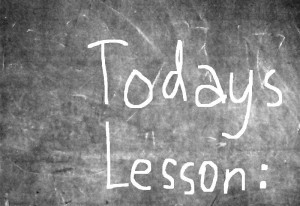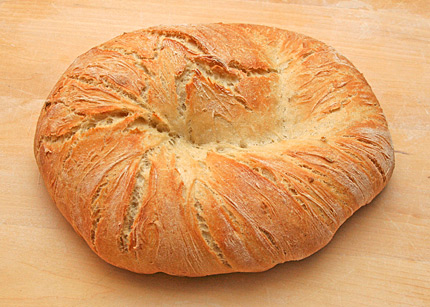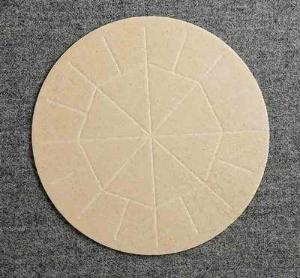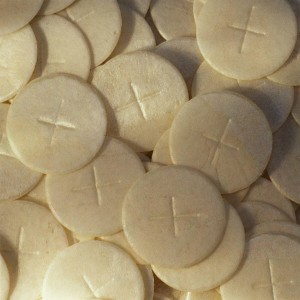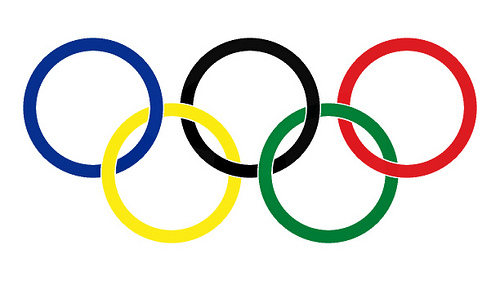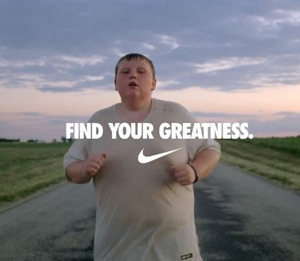John 6:56-69
On the 25th of May in 1961, President John F. Kennedy stood in front of a joint session of Congress and announced that within that decade, the United States would go to the moon.
He made this bold announcement, this bold proclamation, this challenge, to the people of America, and to the people of the world, at the height of the Cold War, in the age of Sputnik, when the United States and the Soviet Union were in direct competition with each other to rule the world.
On the 20th of July in 1969, we achieved his promise.
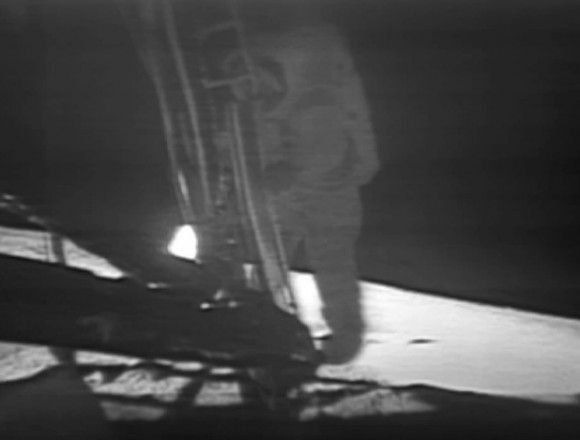 Neil Armstrong climbed out of the Lunar Landing Module, which was called the Eagle, and he paused on the steps of that ladder, and then he jumped off, and he landed on the moon.
Neil Armstrong climbed out of the Lunar Landing Module, which was called the Eagle, and he paused on the steps of that ladder, and then he jumped off, and he landed on the moon.
And he said, “This is one small step for man and one giant leap for mankind.”
When Neil Armstrong jumped off that ladder, he had no idea what was going to happen. It was this amazing leap of faith for him to do this, because nobody knew what the moon was really made of. Nobody knew how thick the dust was going to be. Nobody knew if he was going to sink up to his hips in dust. Even though the Landing Module was sitting firmly, it had special webbed feet – it had duck feet, believe it or not – so that it could spread its weight out. But he didn’t. He was in this giant, giant, white suit, with these magnificently huge boots, and he jumped off that ladder not knowing what was going to happen.
Millions of us around the world were glued to our televisions and our radios, waiting to hear. I remember sprawling on the floor in my parents’ bedroom, in front of our color TV, watching this scratchy, grainy, black-and-white image, and listening to this scratchy, fuzzy audio, and not knowing what was going to happen.
But he made that jump. He made that leap of faith, because he believed in what he was doing.
Yesterday, we received the sad news that he had died, three weeks after undergoing heart surgery. He died from complications from that surgery. And since the moment we got that news yesterday afternoon, we have been hearing stories about Neil Armstrong. We’ve been hearing about what he went through to get to the moon, and what happened to him afterwards. The United States never sent him back into space. The government wasn’t stupid. They weren’t going to take this hero and let him risk his life ever again. So two years after he walked on the moon, he resigned from NASA, and he went back to Ohio, where he was from, and he became an engineering professor at the University of Cincinnati. As they said in one story on NPR, “Can you imagine taking Engineering 101 from Neil Armstrong?” Can you imagine what that must have been like?
All of the remembrances of him talk about his courage, but they also talk about his humility. In a speech he gave years later, he said, “I am, and ever will be, a white socks, pocket protector, nerdy engineer.”[1]
Those who are remembering him yesterday and today are speaking, really, of his great humility. They are speaking as well of his strong faith. His faith that what he was doing was possible. That it was possible for the United States to achieve the impossible.
When he went up into space, it was his second time. When he went up again, he said that there was a 90 percent chance, he felt, that he would come back alive. But when it came to jumping off of that ladder, to land on the moon?[2] He figured there was only a 50-50 chance of surviving. So he didn’t actually give very much thought to what he would say.[3]
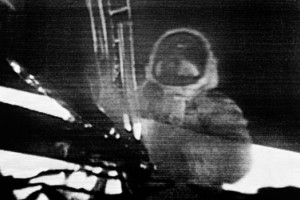 And yet he comes out with that magnificent quote, “one small step for man, one giant leap for mankind.”
And yet he comes out with that magnificent quote, “one small step for man, one giant leap for mankind.”
My friends, this morning’s Gospel – that’s what this is about. One small step for each of us in order to achieve a giant leap for mankind.
Jesus is preaching in the synagogue in Capernaum. It’s is still the same story we’ve been hearing for the last five weeks. We’re still talking about Jesus being the bread of life. Over and over again, he keeps saying this.
When he started out, he was dealing with large crowds. Remember, he had just fed them – 5,000 of them. But when he started talking about bread of life, a bunch of those people said, “Um … no. This is too much.” And they left.
Then, when Jesus repeats again that “I am the bread of life,” now it’s the Pharisees who are objecting. So they leave.
Then Jesus goes into the synagogue at Capernaum, which was a fairly large synagogue, and it was filled with his disciples – not just the ones he called, but the ones who decided that, really, this is the man they’re going to follow. Once again he says, “You’re going to have to eat my flesh and drink my blood.” And they said, “No, we’re not.” And they left.
Now Jesus is down, in this morning’s Gospel, by the end of it, he’s down to the twelve. To the ones he had personally called. The ones to whom he had said, “Follow me.”
Even they are objecting to this idea of eating his flesh and drinking his blood. Even they are saying, “This is really difficult.”
Jesus knew this was difficult. He knew how hard it was. To follow him and to eat his flesh and to drink his blood means to overturn all of the laws that had been laid down, that had set those people aside. If you go through Leviticus, you will find all the laws that control what the people who follow God, the chosen ones of God, can eat. They can only eat certain kinds of flesh. It has to be those with a cloven hoof, and those that chew their cud. We don’t have cloven hooves, we don’t chew our cud. And Leviticus is very, very, very clear, “You don’t ingest blood.” Steak tartare was not on the menu for the Jews. That rare steak that you order, where you say, “Make it good and bloody”? No! The Law is clear.[4]
So when Jesus says, “You follow me, you do this my way? You eat my flesh? You drink my blood?” he’s basically telling those who follow him, “You’re going to leave behind everything you know, and you are no longer going to belong to your community, to your family, to your faith.”
It’s an incredible challenge, a bold proclamation – to change the world.
Take this small step with me and for me, Jesus says, and you will be making a leap for all of God’s beloved children.
This is the question that we have to face – for ourselves. Right here. Right now. Before you come forward to have the Body and Blood of Jesus Christ, you have to make a decision.
But before you make that decision, I’m going to warn you: This is a difficult thing to do. Because if you decide that you really want to eat the Body of Christ, that you really want to drink the Blood of Christ, that this really is real for you … if you are going to accept this challenge, let me tell you something: It means that you will no longer belong in society. It means that you will be outside of society. It means that some of you are going to have to turn your backs on your families.
Because it means that you’re going to have to live in a whole new way. You can’t just take the Body and Blood of our Lord and Savior Jesus Christ and walk out that door and not be changed! It’s what I told you a couple of weeks ago, when we were talking about this. It changes you. It sets you apart. And if you accept this challenge, if you come forward and you eat the Body and you drink the Blood of Jesus Christ, then you already are changed, and you are going to go out into the world and you are going to change the world.
Because it means that you are going to have what’s called an agenda. You’re going to have the agenda that is always, always, seeking to feed the hungry, and to give water to the thirsty. Always, always, seeking to correct the injustices, never shrinking back, never clinging to that ladder of the Lunar Landing Module and saying, “Oh, I’ve changed my mind, I don’t think I’m going to do this anymore.” No! If you’re going to stand up to the injustices of the world, you had better leap off that ladder. Because that is what Jesus is asking you to do.
Being a follower of Jesus is not just saying, “I’m a Christian.” It means you have to live a Christian life. You have to have an agenda that says, “You know what? I believe we can give sight to the blind. I know we can give hearing to the deaf, and voice to the mute. I know that we can proclaim freedom to the prisoners. I know that we can stand up against a society that says we have to be divided; a society that says, ‘I’ve got mine and I don’t care if you ever get yours.’” You have to seek a society that is together for the common weal its people.[5]
If you’re going to be a Christian, if you are going to take that leap off of that ladder, let me tell you, there are going to be a lot of people who are going to come gunning for you. There are a lot of people who are going to say to you, “You know you’re crazy? You can’t do that. That’s impossible. Why would you want to live your life this way? Who told you to make the decisions for me? I’ll do what I want!”
You jump off that ladder, you’re jumping into the unknown. Just like Neil Armstrong did. Just like Buzz Aldrin did a couple of minutes later.
But that’s what Jesus is challenging us to do.
And remember, he’s giving us an out. He makes it very, very simple: “Do you also wish to leave?” Even to his chosen 12, he gave them the option to go home.
Now can you imagine what that must have been like? You give up everything in your life. You walk away from your family, you walk away from your job, you walk away from your inheritance – do you think that Zebedee was really going to turn over his fishing fleet over to those two boys of his, James and John, after they walked off the job and left him high and dry? Uh, uh! – You walk away from all that they way they did … imagine what that must have been like.
And then Jesus comes along, and he keeps preaching this really hard stuff: No! You can’t go along to get along! No! You can’t accept injustice and say, “It’s not my problem.” No! You can’t walk by the person who’s starving! No! You cannot let the naked person stay naked; you have to take your clothes off and given them to him! No! You cannot let people beat each other up! No! You can’t stand by and watch people bully each other in school! No! You cannot, cannot allow the poor to stay poor while the rest of us have more than enough.
Imagine what it was like for Jesus and his disciples at that important, challenging moment, when he said to them, “Do you also wish to leave?”
Amazingly, none of them did.
They didn’t leave because Peter – God bless Peter, who never quite got it even when he got it! – Peter looked at him and said, “Lord, where else are we supposed to go? To whom else can we go? We have come to believe and we know that you are the Holy One of God.” There’s nothing else out there for us!
You don’t really think Neil Armstrong was going to crawl back up that ladder without jumping off, do you? With all of the time and money that we had put into this, do you think he was really going to cling to that ladder and call Houston and say, “Houston, I don’t feel like doing this”?! He had accepted the challenge. He clearly knew – because he told people about this – there was a 50-50 chance he was not coming back! And he still went ahead and did it … because he believed.
He believed that it was possible for us to explore the heavens.
Do we believe, with that much faith?
Do we have the faith of the disciples, who said, “Lord, to whom else would we go?”
Do we have enough faith to live the life that we proclaim that we are living when we’re here in church … outside the church?
This is what Jesus probably would understand is called a fish-or-cut-bait moment. That’s probably a term that would make sense to him, because he lived with a bunch of fishermen. You either keep on fishing, in the sure and certain knowledge that it’s going to work, or you cut bait and you move on.
So this is your fish-or-cut-bait moment. This is your chance to not only take a small step for yourselves, but to take a giant leap for mankind.
Let me tell you, if each and every one of us decide to get off that ladder and land on the unknown surface of the moon? We can change the world. We will change the world.
If each and every one of us makes the commitment that Jesus is indeed the Holy One of God and that he came here for us, and that he died for us, and that he rose for us … if we accept that and live that, I’m telling you, the world will be a different place!
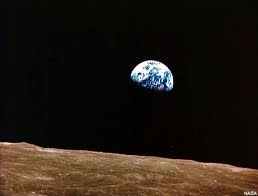 We will not have hungry people in the world. We will not have people without clean water. We will not have people who have no access to medicine. We will not have rampant injustice. If we take the time to live the Gospel, to live the promise that Jesus gives us, through his own body and blood – we’re not just eating wafers and sipping port wine here, folks – it’s a lot more than that.
We will not have hungry people in the world. We will not have people without clean water. We will not have people who have no access to medicine. We will not have rampant injustice. If we take the time to live the Gospel, to live the promise that Jesus gives us, through his own body and blood – we’re not just eating wafers and sipping port wine here, folks – it’s a lot more than that.
When we come forward, we’re making a commitment to a way of life.
Not just for yourselves.
But for all of God’s beloved creation.
Are you willing to jump off that ladder?
Amen.
Sermon preached on the 13th Sunday after Pentecost, Proper 16, Year B, at the Church of the Good Shepherd, Blue Grass, Va., on 26 August 2012.
[1] The Associated Press, To Hero-Astronaut Armstrong, Moonwalk ‘Just’ a Job,
http://www.npr.org/templates/story/story.php?storyId=160044021
[2]Allison Keyes, In just ‘one small step,’ Armstrong became an icon, NPR’s Weekend Edition, http://www.wbur.org/npr/160059467/in-just-one-small-step-armstrong-became-an-icon
[3] Ibid.
[4] Extrapolated and condensed from Rick Morley, “The bloody truth – a reflection on John 6:56-69,” http://www.rickmorley.com/archives/1880, 13 August 2012.
[5] Paraphrase of Dave Comstock, member of The Christian Left: ”A ‘Christian’ agenda is one that seeks healing, feeds those who are hungry, confronts injustice, eschews wealth, welcomes the stranger, fixes what is broken, is present where people are experiencing ‘crucifixion’ in order to embody ‘resurrection.'” 24 August 2012 via Facebook.





